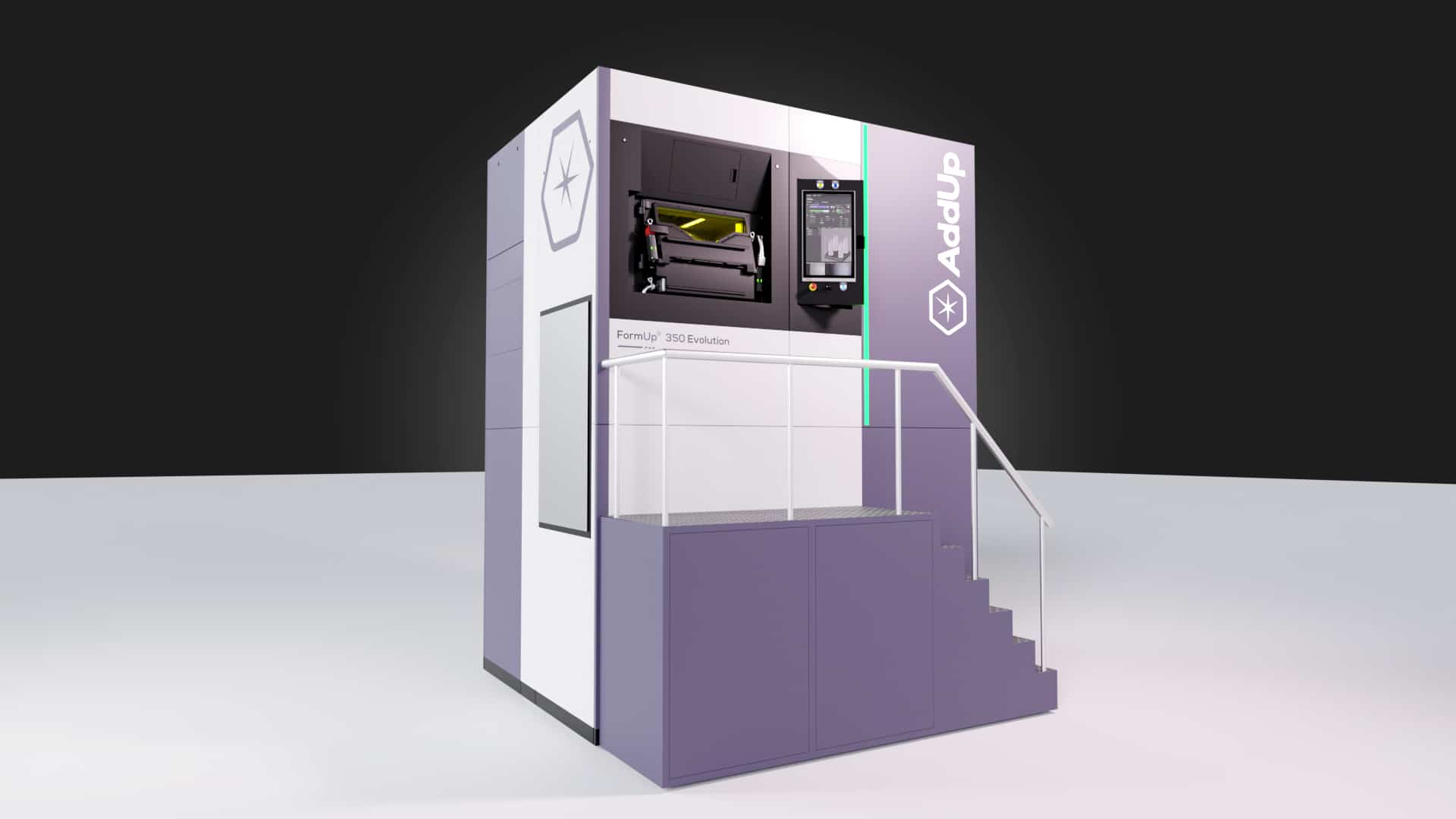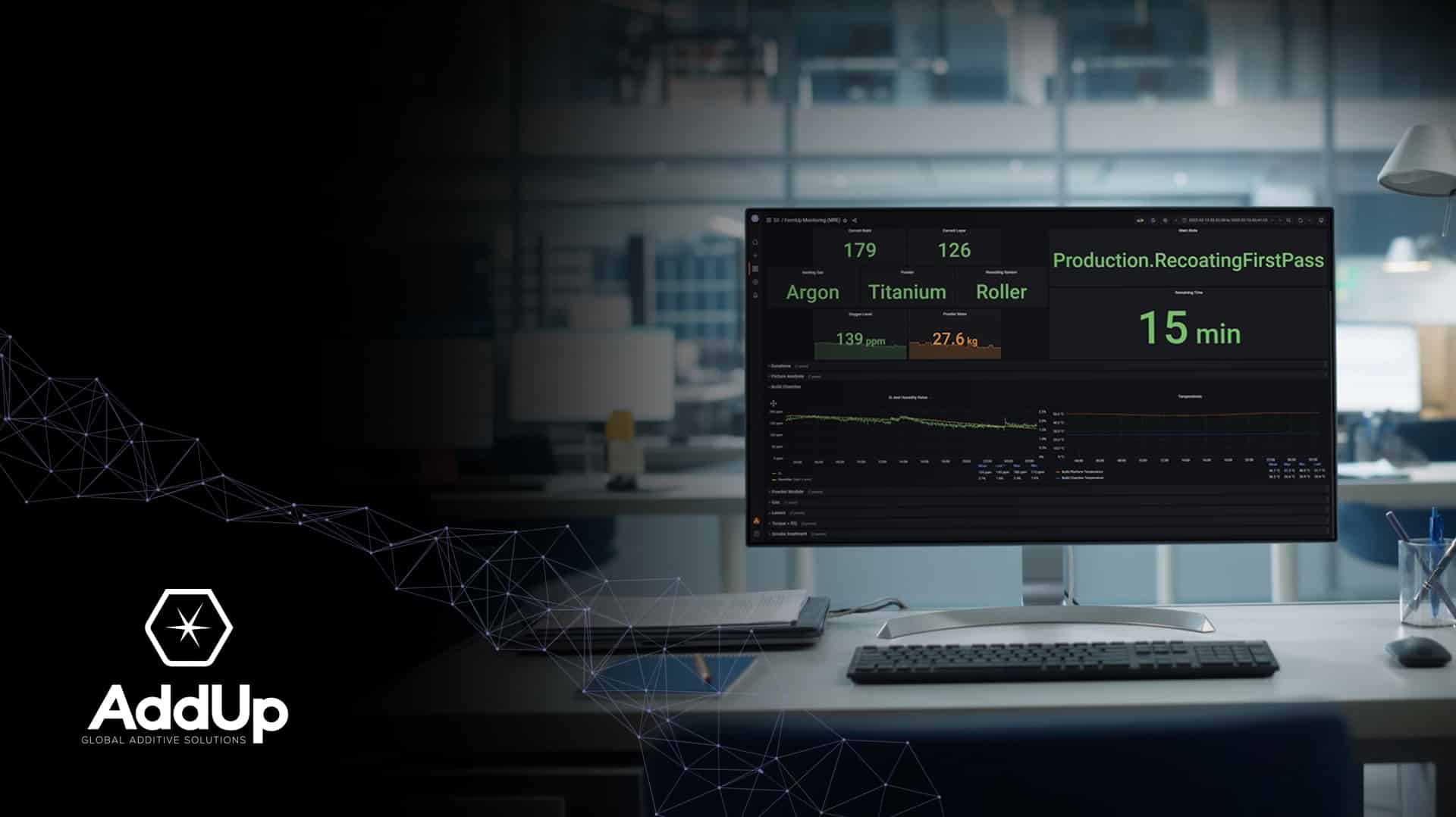AddUp started in 2015, as the result of a joint venture between Michelin, the French multinational tire manufacturing company, and Fives, an international industrial engineering group that designs and builds machines. The two groups entered the joint venture after determining that the available metal additive manufacturing machines were not able to meet their requirements for high-quality, serial production of maraging steel tire mold inserts.
The collaboration sought to develop a Laser Powder Bed Fusion (LPBF) machine that could build high-quality tire mold inserts and industrial parts, accurately, and repeatedly, at scale. The LPBF technology was developed thanks to Michelin’s expertise, and is now operated by Michelin, too, for large-scale industrial production.
The collaboration benefits from the Fives Group’s industrial heritage, which brings know-how in terms of the design, manufacturing, and distribution of machines, tools, and automated production lines.
Now, the OEM offers a catalog of multi-technology production systems, including the Magic and Modulo lines and the FormUp range. The Magic and Modulo lines are industrial DED machines, which have been a part of AddUp’s ecosystem since the group acquired 100% of BeAM, in 2018. The FormUp range consists of open and robust PBF machines, which are available with multiple spreading devices.
 AddUp’s FormUp 350 Evolution
AddUp’s FormUp 350 Evolution
The PBF range will expand with a brand-new machine, which will be officially announced at Formnext 2022: the FormUp 350 Evolution. Based on the current generation machine and its four lasers, this new version offers a higher Z dimension of 1000mm, and a total build volume increase of 185% – as a response to the growing demand from many customers, including those in the space and aeronautics industries.
The innovation also comes with an extractible build chamber that enables rapid changeover – minimizing non-production time by reloading an empty tray into the FormUp 350 Evolution in preparation for the next build. The depowdering operation can also be realized outside of the machine.
Manufacturing on Demand
The FormUp 350 Evolution, having an architecture similar to the current PBF solution, allows for the new version to leverage existing robust parameters previously developed by AddUp. Thanks to the dual recoating possibilities (blade or roller), the machine can be used with different powder distribution settings (fine and medium).
The FormUp 350 Evolution will be available in 2023.
Sticking with the modular and scalable approach of the FormUp line, the Evolution offers a high level of productivity and allows for the manufacturing of high-quality parts, while guaranteeing user safety. The FormUp 350 is the only machine on the market with an interchangeable recoating device – enabling users to choose the powder spreading system best suited to their production. The user can choose from a recoating system, for flexibility during development, or a roller system that allows for the use of fine powders, for support-free production of cantilevered parts and improved surface finishes (10 µm reduction in arithmetic roughness (Ra), regardless of the surface angle).

AddUp’s machines are accompanied by a full suite of software solutions – from build preparation to real-time monitoring – and a team of experts who are ready to support customers with identification and business case development, application development, and qualification support to accelerate their customer’s adoption of metal additive manufacturing.
“As AM becomes more heavily adopted in highly regulated industries, the need for quality assurance capable of reducing or eliminating post-production inspection will become critically important to enable production at scale. Our monitoring solutions achieve just that. Our Dashboard’s platform is monitoring machine health both in real-time, as well as historical data, resulting in a build report of key process parameters,” said Mathieu Roche, Marketing & Technology Manager, and Software Product Manager at AddUp, when asked about how AddUp is catering to the future demands of the AM industry. “Our closed-loop Recoat Monitoring is providing a scoring of the bed quality and automatically recoating if needed – preventing defects before they occur. Lastly, our Meltpool Monitoring is processing real data that can be correlated to potential defects, isolating their location for additional inspection as required.”
In terms of AddUp’s goals for the future, the group aims to be the leader of serial production applications by utilizing the company’s technology, and providing customers with robust and quality tools to meet their most difficult challenges.
The group is well-equipped to achieve this goal. “Our team and platforms are industrially hardened, born from the factories of industrial pioneers in Michelin and Fives, to meet the highest levels of quality and repeatability while ensuring the safety of the operators. Our open architecture allows for customization of materials and machine parameters to optimize for serial production,” said Mathieu Roche. “Our technology allows designers to take full advantage of the design freedoms provided by AM to meet optimal performance for their application through our fine powder and roller combination.”
You might also like:
Vertex Manufacturing orders 2 more Sapphire XC 3D printers: As a leader in additive manufacturing and secondary processes, Vertex specializes in providing effective solutions to demanding customer engineering challenges. Capabilities include a wide range of post-processing services such as full 5-axis machining and finished-product surface treatments. Vertex currently operates a fleet of Sapphire printers calibrated to print in Inconel 718, a nickel-based superalloy that provides high strength and oxidation resistance even at near-melting point temperatures. Available at scale, Vertex also offers to manufacture using GRCop-42, a copper, chromium and niobium alloy that was developed by NASA for use in regeneratively-cooled rocket engines. With these technologies, customers spanning multiple critical industries including aerospace, space, medical devices, and semiconductor, can rely on Vertex for all challenging scenarios.
* This article is reprinted from 3D Printing Media Network. If you are involved in infringement, please contact us to delete it.
Author: Edward Wakefield

Leave A Comment